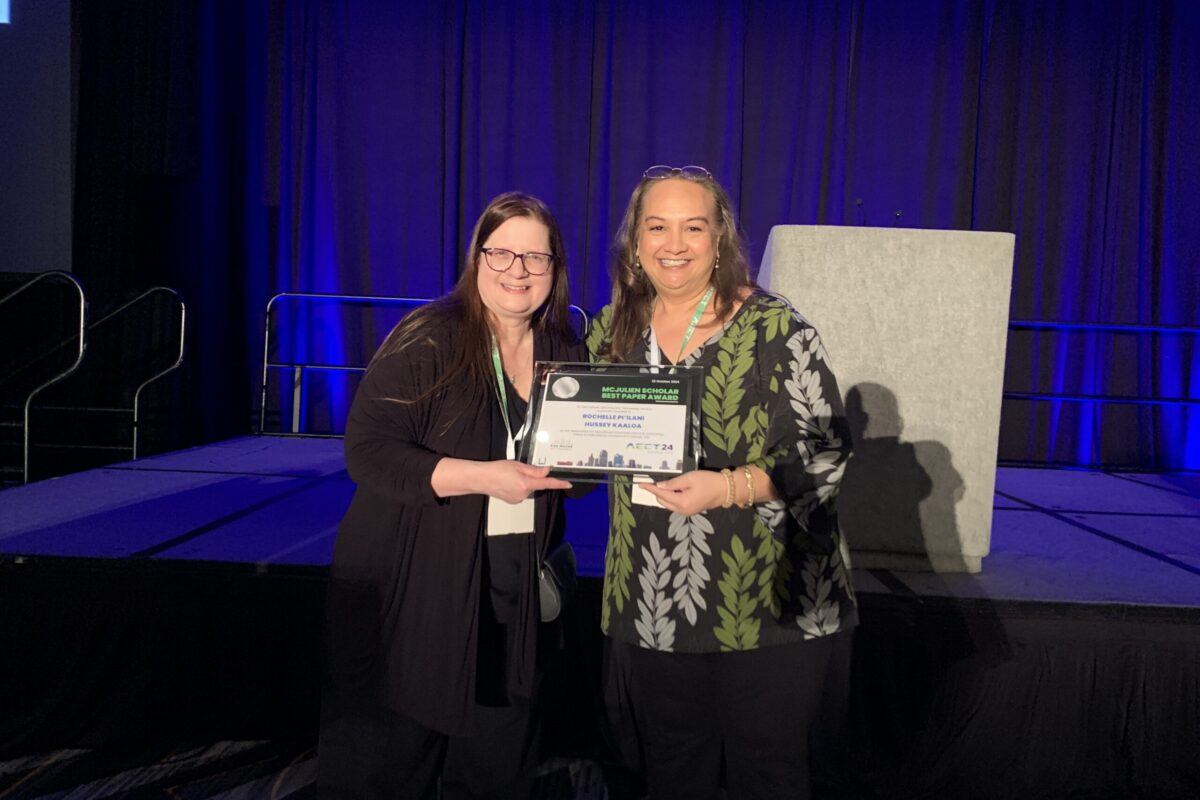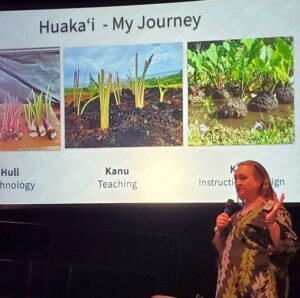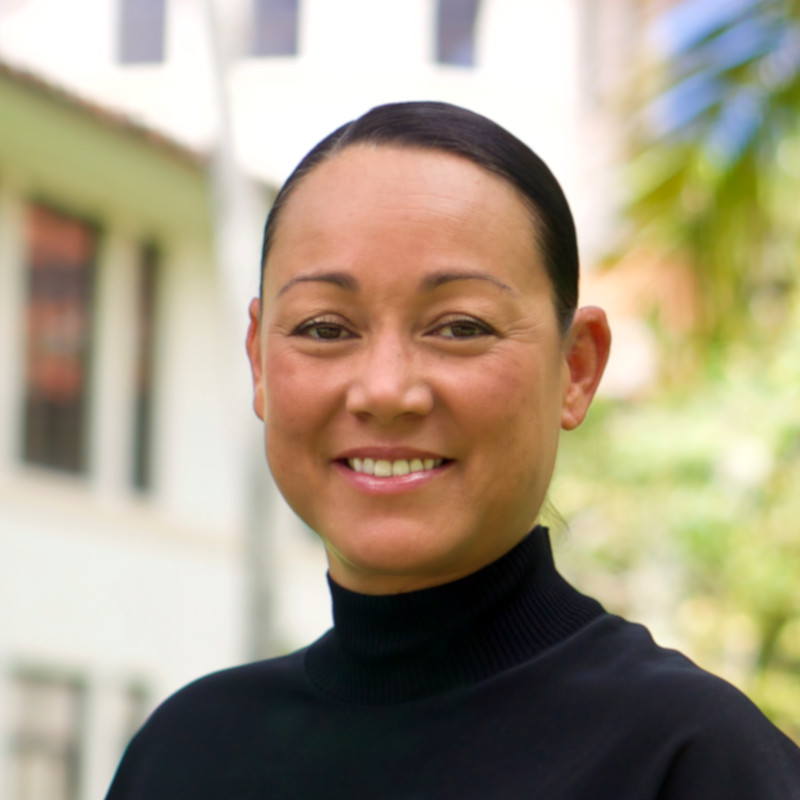
Rochelle Piʻilani Hussey Kaʻaloa, a two-time College of Education (COE) alumna, has been selected as the Interim Associate Dean of Graduate Division at UH Mānoa. With the university since 2001, she worked as a COE Department of Curriculum Studies grant coordinator before serving as an associate specialist at the Kamakakūokalani Center for Hawaiian Studies for the last 21 years.
“This new appointment is exciting for me as I was the Graduate Chair in Hawaiian Studies for over 13 years,” Kaʻaloa said. “This experience allowed me a front seat view to the empowerment of graduate level scholarship for my students’ careers, families, and communities. I am honored to be in a position now to contribute to campus-wide graduate level program support, opportunities, and initiatives while adding my unique lens as a native Hawaiian educator and a learning, design, and technology practitioner.”
Kaʻaloa, who earned her MEd and PhD in the Department of Learning Design and Technology (LTEC), also received the prestigious 2024 McJulien Scholar Award from the Association for Educational Communications and Technology (AECT). She was presented with the award by the Culture, Learning, and Technology Division on October 22, 2024 during the AECT International Convention in Kansas City, Missouri.
“I am beyond honored to be recognized at an international level by AECT for telling my story of my 25 years as a Native Hawaiian Instructional Designer from the middle of the Pacific among my community and people,” Kaʻaloa said. “I was excited to be invited to share this story, not only of my work, but of the collective work with technology, utilizing instructional design in every educational space possible to impact my students, teachers, faculty members, colleagues and ultimately my Lāhui and people.”
Kaʻaloa’s dissertation research, Technology, Instructional Design, and Storytelling: My Journey as a Native Hawaiian Educator, investigates whether Native Hawaiian higher education faculty cultural beliefs influenced their choices to integrate instructional technology into their teaching. Her study includes eight Native Hawaiian educators’ stories, culminating in a collective story which affirms that cultural beliefs or ways of knowing influence the way Native Hawaiian faculty members relate to technology, made decisions on what technologies they used, integrated technology tools into their practice, and evaluated whether to continue or stop using a technology in their teaching.
 “My research affirmed my 20+ years of work as an instructional designer that technology integration for Native Hawaiian faculty is layered and at times difficult,” Kaʻaloa said. “My research identified a culturally-sustaining technology adoption model that acknowledges the relationship that cultural beliefs have in technology integration and the challenges that intersect with ways of knowing. Specifically, my study highlights the collective influence of I ka wā ma mua, ka wā ma hope (the time in front and the time in back); Kuleana (rights, responsibility, and authority); Pono (well-being in relationship); and Mahalo (respect in relationship) in their choices to use instructional technologies in their teaching, research, and learning.”
“My research affirmed my 20+ years of work as an instructional designer that technology integration for Native Hawaiian faculty is layered and at times difficult,” Kaʻaloa said. “My research identified a culturally-sustaining technology adoption model that acknowledges the relationship that cultural beliefs have in technology integration and the challenges that intersect with ways of knowing. Specifically, my study highlights the collective influence of I ka wā ma mua, ka wā ma hope (the time in front and the time in back); Kuleana (rights, responsibility, and authority); Pono (well-being in relationship); and Mahalo (respect in relationship) in their choices to use instructional technologies in their teaching, research, and learning.”
On her experiences in the LTEC programs over the years, Kaʻaloa said she has been able to collaborate on research, service opportunities, and grant work with the LTEC faculty whom she considers her mentors, colleagues, and forever family.

